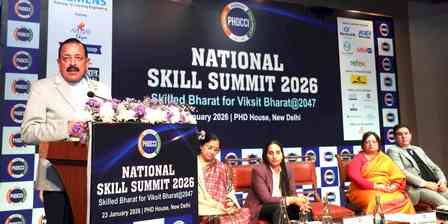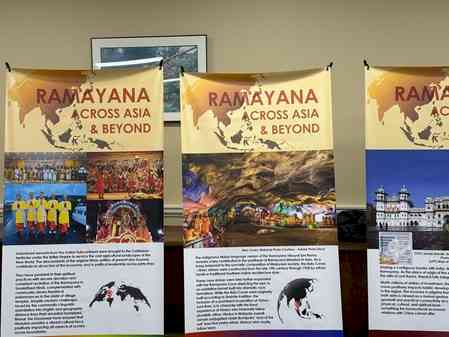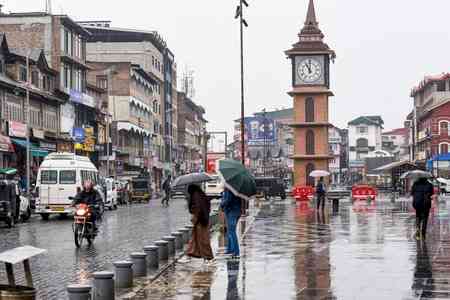Meta announces safety initiatives for India to protect women
Launches StopNCII.org platform in India to curb non-consensual intimate images

New Delhi, December 3, 2021: Safety is an integral part of Meta’s commitment to building and offering a safe online experience across the platforms and over the years the company has introduced several industry leading initiatives to protect users online. Furthering its effort to bolster the safety of users, Meta today announced several initiatives aimed towards online safety of women on its platforms.
• StopNCII.org - is another important initiative announced by Meta to combat the spread of non-consensual intimate images (NCII). In partnership with UK Revenge Porn Helpline, StopNCII.org builds on Meta’s NCII Pilot, an emergency program that allows potential victims to proactively hash their intimate images so they can’t be proliferated on its platforms. Link: https://stopncii.org/
• The Women’s Safety Hub - launched in Hindi and 11 other Indian languages will enable more women users in India to access information about tools and resources that can help them make the most of their social media experience, while staying safe online. This key initiative by Meta will ensure millions of women, especially non-English speakers do not face a language barrier in accessing information easily that will enable them to stay safe online.
• Bishakha Datta, Executive Editor, Point of View and Jyoti Vadehra, Head of Media & Communications, Centre for Social Research- are the first Indian members in Meta’s Global Women’s Safety Expert Advisors. The group comprises 12 other non-profit leaders, activists, and academic experts from different parts of the world and consults Meta in the development of new policies, products and programs to better support women on its apps.
• Discussion paper by Sattva Consulting titled, ‘Connect, Collaborate and Create: Women and Social Media During the Pandemic’, was also released on the occasion. The Meta-commissioned paper sheds light on measures to address the sharp gender imbalance in social media usage in India.
Karuna Nain, Director, Global Safety Policy at Meta Platforms Inc, said, “At Meta, building a safe online experience has been a priority and our commitment and efforts to keep women safe are industry leading. While we continue to build and invest to ensure online safety, the launch of these initiatives today is another step towards our commitment. We are confident that with our ever-growing safety measures, women will be able to enjoy a social experience which will enable them to learn, engage and grow without any challenges.”
Rolled out globally, StopNCII.org was built keeping safety, privacy and security of the users at the core. Operated by UK Revenge Porn Helpline and built by Meta, StopNCII.org will empower women across the world to combat and prevent the spread of non-consensual intimate images (NCII). The first of its kind platform, has partnered with global organizations to support the victims of NCII. In India, the platform has partnered with organizations such as Social Media Matters, Centre for Social Research, and Red Dot Foundation.
“India is an important market for us and bringing Bishakha and Jyoti onboard to our Women's Safety Expert Advisory Group will go a long way in further enhancing our efforts to make our platforms safer for women in India,” added Karuna on the appointment of Indian members on Meta’s Safety Advisory Board.
Speaking about her appointment to Meta’s Global Women’s Safety Expert Advisors, Jyoti Vadehra, Head of Media & Communications, Centre for Social Research said, “India continues to lead global digital growth and Meta is at the centre of driving a more digitally inclusive and safe environment. Getting an opportunity to drive initiatives around women's safety from an Indian lens is a matter of pride and great responsibility and I am glad to be part of Meta's Women's Safety Advisors.”
The Women’s Safety Hub hosts all the safety resources women need when navigating the platform. It includes specific resources for women leaders, journalists and survivors of abuse. Additionally, it also contains video-on-demand safety trainings and allows visitors to register for live safety training hosted in multiple languages. Developed in consultation with various non-profit partners around the world, the safety hub, besides English, will also be available in Hindi, Marathi, Punjabi, Gujarati, Tamil, Telugu, Urdu, Bengali, Odia, Assamese, Kannada and Malayalam.
The discussion paper by Sattva consulting on ‘Connect, Collaborate and Create: Women and Social Media During the Pandemic’ brings a core issue in focus - gender imbalance on social media and the ways to bridge this gap. The paper highlights that only 33% of women in India use social media, against 67% men. Based on secondary research and interviews with individuals and civil society organizations, the paper suggests ways to bridge the gender divide that is exacerbated by issues such as limited internet connectivity in rural areas, lack of device ownership and poor digital literacy. The paper also cites the positive impact of social platforms on the economic, social and emotional well-being of women, especially during the pandemic.
Madhu Singh Sirohi, Head of Policy Programs and Outreach, India at Meta, said, “In the past year when normalcy was upended, social media played a significant role in the personal and professional lives of women, not only for connecting with friends and families but also as an enabler to entrepreneurship. With our recent initiatives, we understand there is a massive opportunity for us to further the positive impact of social media platforms on women by addressing digital inclusion gaps and ensuring women have a safe environment to engage online.”
Meta has taken various steps towards women’s safety, whether it be developing strong policies against bullying and harassment by consulting a diverse set of global stakeholders or making technological changes to combat the sharing of non-consensual intimate images on the platform. There are several safety organisations that work as trusted partners with us on women safety issues for reports from users. All such initiatives form part of Meta’s efforts to help women stay safe against any kind of harassment on its platforms, enabling them to express themselves freely and avail the opportunities the internet provides across the globe.


 cityairnews
cityairnews 










